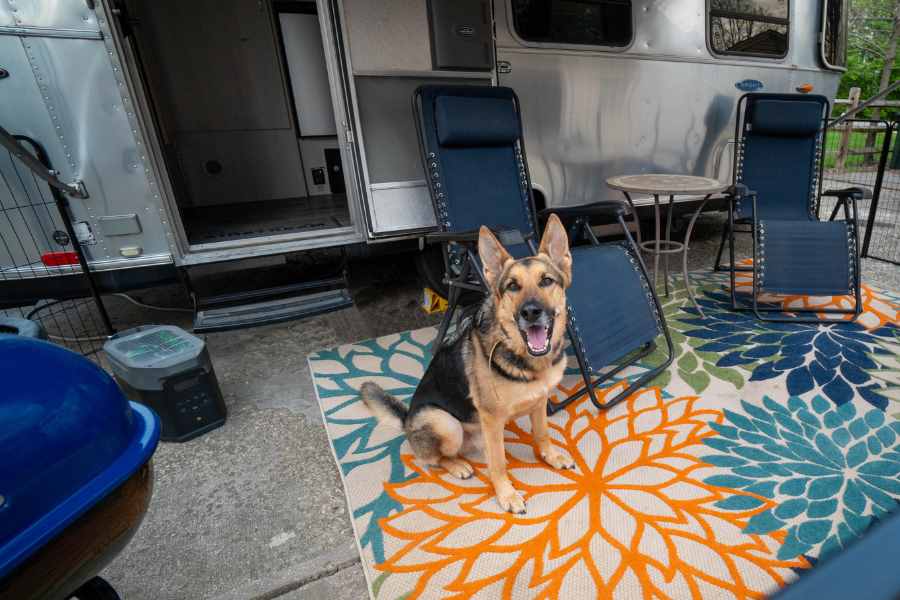Introduce
Meet the German Shepherd, a brilliant, loyal, and versatile companion that effortlessly blends into family life. Renowned for their exceptional working abilities and amiable temperament, German Shepherds make for ideal family pets and diligent working partners. Yet, like any unique individual, German Shepherd training and caring demands thoughtful consideration. This comprehensive guide is here to walk you through the journey of nurturing a joyful and well-mannered German Shepherd, covering details from their distinctive traits to the daily grooming routine.
1. Character Traits of the German Shepherd
German Shepherds are known for their determined, resourceful, and loyal personalities. They are extremely intelligent dog breeds that are not only capable of performing a variety of work tasks, but also show a deep love for their families. This dog is caring towards its family members and is loyal to its pet owner to the core. Their bravery and adaptability also make them excellent watchdogs and working companions.
Due to their strong working instincts, German Shepherds are usually very active and playful. This gives them high potential for training and outdoor activities. However, to realize the full potential of the German Shepherd training, pet owners need to understand and adapt to their unique personality traits.
2. German Shepherd Training Power and Preparations
The Crucial Role of Training German Shepherd:
Training is the key to fostering a harmonious relationship between German Shepherds and their owners. A well-trained German Shepherd not only behaves better but also establishes a deeper bond with their human counterparts.
Setting the Stage for Training:
Before diving into formal training, understanding the unique personality traits of German Shepherds is essential. Establish clear training goals and be prepared to employ positive reinforcement and patience for effective results.
 3. Crafting a Foundation with Basic German Shepherd puppy Training
3. Crafting a Foundation with Basic German Shepherd puppy Training
Starting Early with German Shepherd training, German Shepherd puppies exhibit intelligence from an early age, here are some tips to get you started:
Positive Reinforcement Principles:
- Harness the power of positive reinforcement using treats, praise, and toys. This encourages their enthusiasm, making the learning process enjoyable.
- Mastering Basic Commands: Teaching fundamental commands like sit, stay, and walk lays the groundwork for obedience. A positive training environment enhances their interest and accelerates learning.
- Creating an Inviting Training Atmosphere: Choose suitable locations, minimize distractions, and provide engaging toys to create a positive learning environment. Using a dog playpen at home can let German Shepherd puppies feel safe and offer a safe space for them. German Shepherds thrive on positive reinforcement, making the atmosphere pivotal to their learning enthusiasm.
- Recognizing the Importance of Training Time: The positive attitude German Shepherds exhibit during training correlates with the time invested. Short, frequent sessions prevent fatigue and ensure a productive learning experience.
4. Family Adaptation Training
Welcome new family members:
Although German Shepherds are naturally a family-friendly breed, a careful approach is needed when introducing newborn German Shepherd puppies to a new family member. Here's how to ensure a smooth transition:
Gradual integration into the family:
Foster a positive relationship by gradually introducing family members, especially when other pets are present.
Establish rules of interaction:
Teaching children and other pets how to interact with your German Shepherd is crucial. Emphasize gentle and respectful interactions to help the dog adjust to various family dynamics.
Use dog playpens to help:
When the family first welcomes newborn German Shepherd puppies, use an indoor dog playpen to set up an acclimatization for the puppies, giving them time to adjust to their new surroundings. Dog playpens are an invaluable tool in a family setting.
5. Training German Shepherd Outdoors
Outdoor adventures:
German Shepherds have a lot of energy and outdoor activities are vital to their well-being.
Walks, games and stimulating activities:
Make sure your German Shepherd gets plenty of walks, engages in interactive play, and provides stimulating activities. Not only does this fulfill their physical needs, but it also strengthens the bond between you and your furry friend.
Outdoor Fence Protection:
In outdoor training, outdoor dog playpens can provide a free space for your German Shepherd and add a layer of safety and protection. Especially in open spaces, dog fencing helps control German Shepherds' range of motion and prevents them from becoming overly sensitive to outside stimuli.
6. Unleashing Socialization Training
Socialization Symphony:
Socialization is key to the overall development of the German Shepherd training. A well-socialized dog adapts effortlessly to its environment and exhibits friendly behavior. Here is a guide to effective socialization training:
Emphasize the importance of socialization:
Start socializing early by exposing your German Shepherd to a variety of environments, people and other dogs. This will promote positive social behavior and adaptability.
Addressing Socialization Challenges:
While German Shepherds are generally friendly, they can face socialization challenges. Prompt intervention, gradual exposure, and positive reinforcement will help your dog adapt to different social situations.Rely on the dog playpens for socialization:
Using a dog fence gives dogs a socializing environment, and by introducing it gradually, dogs are able to cope with social pressure more easily. Dog Playpens have proven invaluable in social training, managing behavior during interactions, and ensuring safety.

7. Prioritizing Safety with Dog Playpen Selection-FXW Dog Playpens
Why dog playpen is essential:
German Shepherds are known for their active and adventurous nature. Fencing ensures their safety by preventing them from wandering into potentially hazardous areas, such as busy roads or unfamiliar territories.
German Shepherds can be sensitive to external stimuli, including other animals, strangers, or sudden noises. Dog fence acts as a buffer, creating a controlled environment that helps manage their sensitivity and reduces stress.
FXW Dog Playpens Reference:
German Shepherds are known for their agility and jumping ability. Dog fences should be tall enough to prevent them from easily leaping over. FXW Rollick Dog Playpens' height is up to 50 inches.
German Shepherds are robust and strong dogs. FXW Dog Playpens are made of metal materials, which can keep them durable. With its portable design, dog owners can set up the dog playpens in a very short time everywhere and easily.
FXW Dog Fence provides a clear boundary without obstructing the view entirely. This helps the German Shepherd understand their limits while maintaining a sense of the surrounding environment.
8. Tailored Care Guidelines
Tailoring Their Diet:
Given their high energy levels, German Shepherds thrive on a well-balanced, high-quality diet. Opt for dog food crafted for large, active breeds, adjusting the portions based on their weight and activity level.
Pampering Their Coat:
With their thick double coat, German shepherd grooming is paramount to the skin and coat health of German Shepherds. Brushing them weekly, especially during shedding seasons, keeps their coat lustrous, prevents matting, and ensures healthy hair growth.
Prioritizing Their Health:
German Shepherds might face specific health concerns like hip dysplasia and eye issues. Regular vet check-ups are vital for early detection. Maintaining their weight and providing ample exercise contributes significantly to their overall well-being.
9. Daily Care Guide
Bathing:
Bathe your German Shepherd every 2 to 3 months or as needed. Use a dog-friendly shampoo, and ensure thorough rinsing to avoid skin irritation. Check ears and paws during baths for any signs of infection or irritation.
Oral Care:
Brush your dog's teeth 2 to 3 times a week. Use a dog toothbrush and toothpaste, focusing on the gum line. Monitor for signs of dental issues, such as bad breath or swollen gums.
Conclusion
By following these personalized guidelines, you'll transform your German Shepherd into a well-behaved, healthy, and joyous companion. Embrace positive reinforcement throughout the training journey, forging an unbreakable bond with your canine confidant. With care and understanding, your German Shepherd will become an indispensable member of your family.


Share:
Labrador Primary Care Guide: Ensuring the Health and Happiness of Your Labrador
How to Train a Golden Retriever - Comprehensive Guides